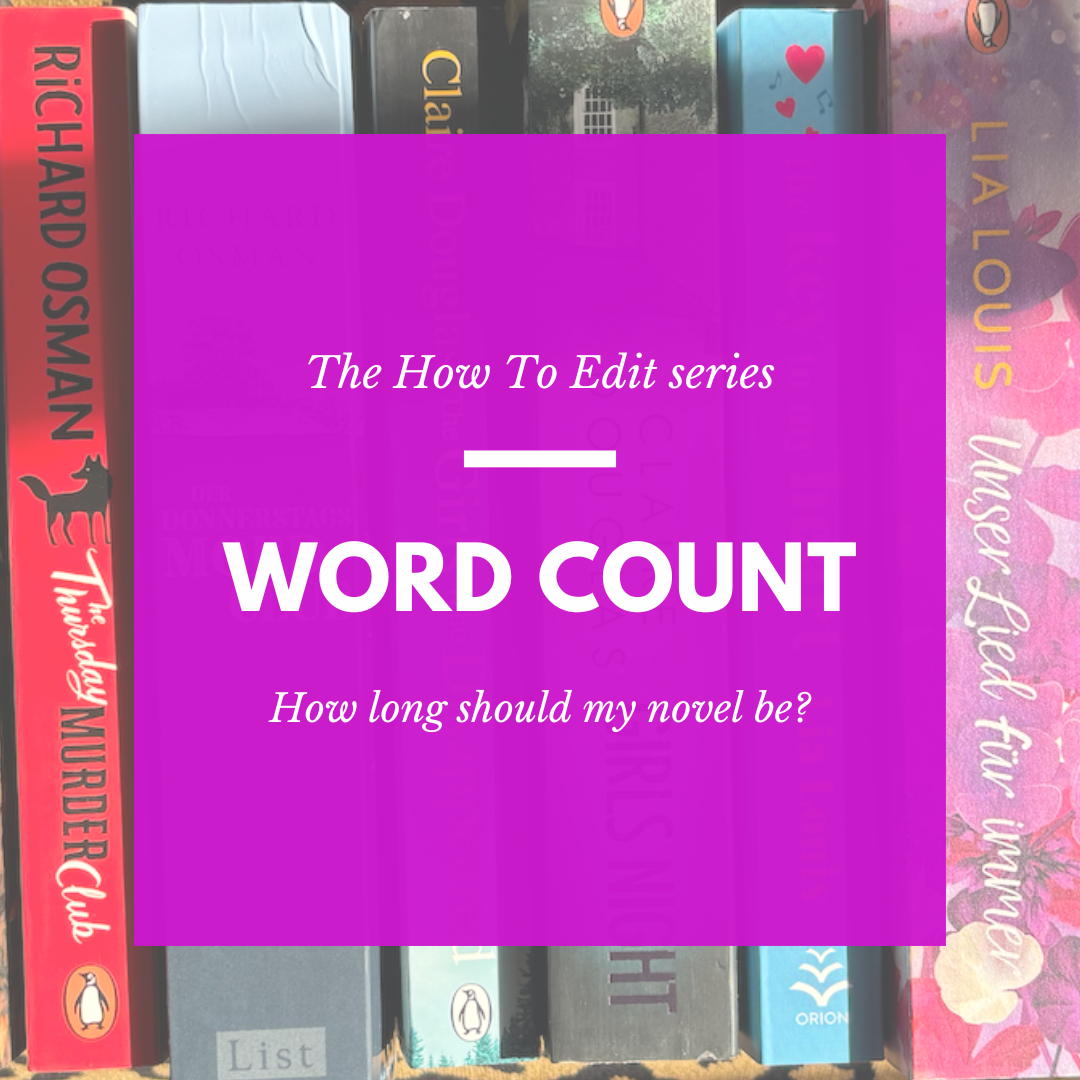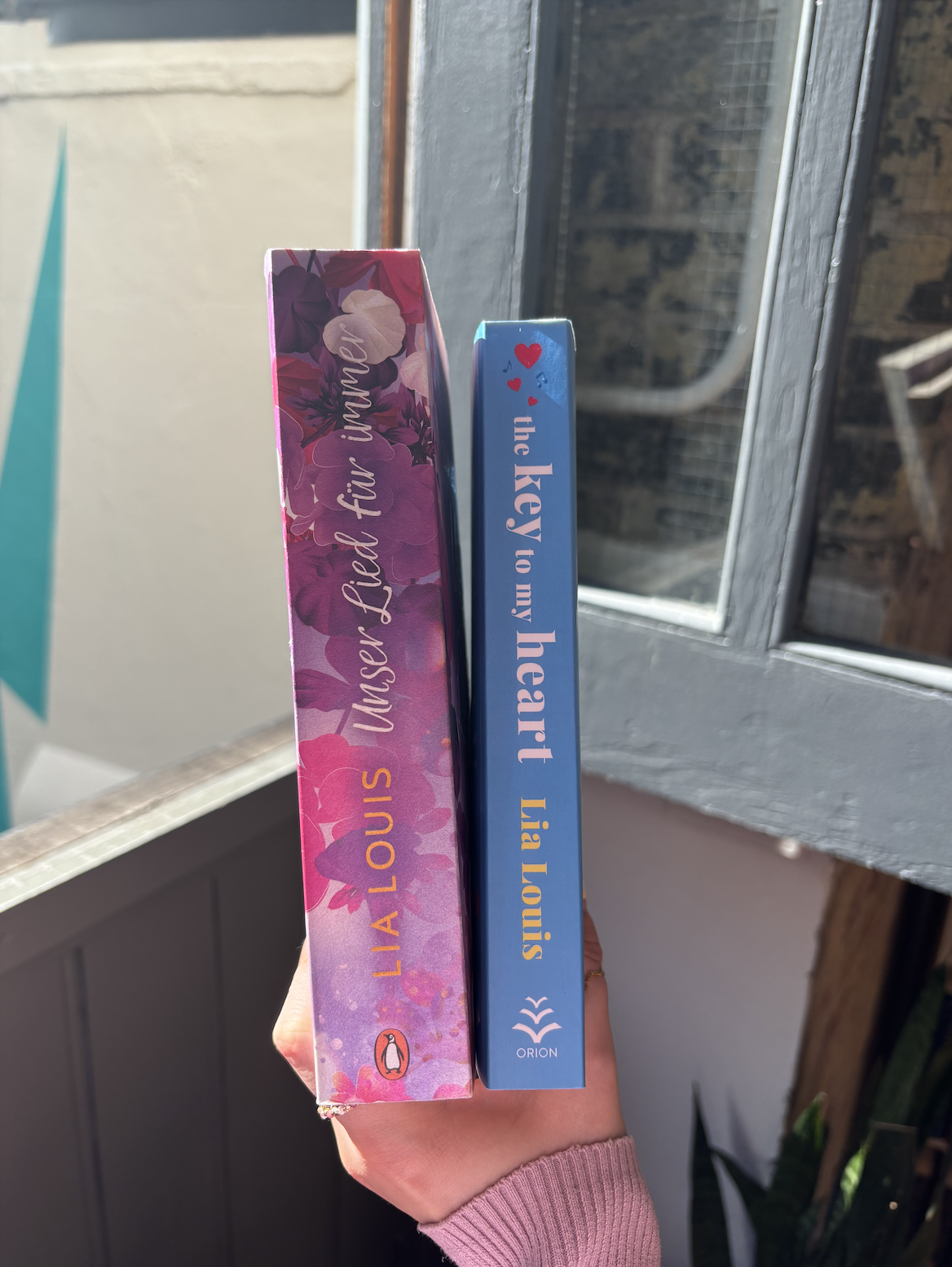Word count: How long should my novel be?
Welcome to the first post in our new How to Edit series, where we share our top tips on how to get your book ready for querying. First up: word count.
This is a question we are often asked by hopeful writers, and one that seems quite simple at face value - how long should my book be? What counts as too long, or too short, and is there a cut-off for what agents and publishers will accept? Whilst in many ways this is like asking ‘How long is a piece of string?’, there are some general guidelines to follow, which will help you put your best foot forward when querying.
Why does word count matter?
Word count is rarely - but not never! - a dealbreaker for agents. It tends to indicate how much an author has engaged with their work, how much productive editing has taken place, and how aware they are of the market for their book and the standard word/page count within their genre. Juliet Mushens says the shortest adult novel she has signed was 55,000 words – but after editing with her it was 75,000, and after editing with a publisher was 95,000. It was a crime novel. And the longest debut? Around 160,000 words in epic fantasy.
We often receive submissions upwards of 200k words, which do ring alarm bells – it signifies that the book either hasn’t been edited, or that there are pacing and structural issues. Whilst of course there are published novels well over this length, they tend to be outliers and rarely are they debuts (once you’re a bestseller – all wordcount bets are off!)
There are some practical reasons as to why a particularly lengthy book is a hard sell – aside from it taking a long time to read, and edit, they’re also much more expensive to produce. A longer word count means more materials needed to print, and can hugely affect the international life of a book. Alba, our foreign rights agent, says:
“Translations can add up to 40% to the word count - so a book of 100k in English could become 140k in another language. This means that the production costs will be higher, which means that the retail prize will be higher, and books abroad are already more expensive than in the UK! I don’t think people realise how different a book can look when translated – I’ve seen proper doorstoppers that were nice, normal volumes in English. A book in English that is 100k will be more expensive to translate than one that is 70k, or even 90k, and this is something international editors take into account when doing their costings and offering an advance.
Finally, international editors receive submissions from the US, the UK, AND from other foreign countries - so the longer a book is, the more time they have to spend on it, and the less time they have to read other submissions.”
Some visual examples of how translation affects word count above - Richard Osman’s The Thursday Murder Club has around 390 pages in English, but nearly 460 in German. That’s an extra 70 pages for the same book!
So how long should my book be?
These numbers aren’t a hard or fast rule – there are books that break these rules which have gone on to become huge successes (we’re looking at you, A Game of Thrones), but the vast majority of books fall into the 80-100k bracket. Here’s a more detailed primer:
General fiction (crime, romance, thrillers, etc) – ideally longer than 70k but shorter than 100k. 90k is usually the sweet spot, and enough words to pull off all the necessary twists, turns, character arcs, and suspense, whilst giving us a satisfying conclusion!
Science fiction and fantasy – readers of books that are more ‘epic’ in scope, and therefore require more worldbuilding, usually expect these to be longer and don’t mind a larger tome. Romantasy tends to be on the shorter side, from 90-120k, whereas epic fantasy can range from anything between 120-150k, or even longer. However, even with longer wordcounts, it’s important to make sure that the book has really earned the wordcount – sometimes a novel feels like two books in one, and there might be an easier way to slice up the story. Some epic fantasies can come on the shorter side too – we’ve sold debuts around the 90k mark, as well as those of the 150k mark. What they have in common is a sense of pace, good worldbuilding, and no wasted words!
Historical fiction – 100-120k – again, as historical fiction requires more worldbuilding, these novels can often be longer than other genre fiction. However, whilst some historical novels are absolute doorstoppers, a considerable number come in on the slimmer end of the spectrum e.g. Dissolution by CJ Sansom at 104k or Ariadne by Jennifer Saint at 95k. Essentially, don’t try to force it into a higher wordcount because you feel you have to: feel what’s appropriate to your story and characters.
Non-fiction – it depends on what kind of non-fiction, but for narrative non-fiction/memoir, 60-90k is typical. Investigative and serious non-fiction tends to be longer, often going over the 100k mark. Remember that non-fiction books are usually sold on proposal, but it’s important to give an accurate estimate of how many words the book might end up being when querying agents.
YA fiction – around 50-80k words for contemporary fiction, and 80k-120k for fantasy. Jennifer Laughran has a great post focusing on children’s/YA wordcounts.
Novellas – the upper limit is around half the word count of a full-length novel, usually 40k or less. Please note that we don’t accept novella submissions at Mushens Entertainment!
How can I reduce/increase my word count?
If you’re reading this and thinking: uh oh, my book is WAY off these numbers – fear not! Here are Mushens Entertainment’s top tips for making your book longer or shorter:
Write your synopsis. Not only is this a crucial part of the querying process (the majority of agencies ask for a synopsis, alongside a cover letter and sample, as part of your submission) but writing your synopsis is a great opportunity to look at where your story might need cutting down, or fleshing out. If your synopsis is over the one and a half/two page mark, you might want to think about whether you’ve simply got too much going on! Likewise, if you’re struggling to even reach half a page, potentially you need to add more action in.
Get some distance, or a second/third/fourth opinion. Writing is an isolating process, and sometimes it’s hard to see the wood for the trees – putting your manuscript away for a month, and spending that time reading published novels, can be a great way to return to editing with fresh eyes. Or, ask your reader friends to take a look and suggest where you could cut or add words, and tell them to be honest with you (the honesty part is crucial!).
Consider your points of action. Compare the main points of action in your synopsis to the manuscript itself - how do you take the reader from one action point to another? Have you repeated information unnecessarily? Or added lots of filler between scenes? Or are we jumping from action to action without much sense of journey in between? A common problem is that some authors move from plot point to plot point without really interrogating the protagonist’s inner world, or that they do the opposite and spend far too long inside their characters’ heads, without telling us about the action. Notice whether you’re guilty of either of these, and see if you can find some more balance – and subsequently, specific points at which you can add or cut words!
Plots and subplots. One of the common editorial tools we use when analysing client manuscripts is to look at the main plots and subplots of the book. Sometimes, looking at the novel under the microscope can really help when figuring out if a plot is baggy, or underwritten. For example, if the novel has 14 different subplots vying for attention then it might well be confusing for a reader, or the pacing might drag. On the other end of the spectrum, if there isn’t really a plot or points of conflict, you might find that adding them in will flesh out a slight wordcount.
Look at your character list. If you have dozens of characters – can any of them be cut out, or are you a bit thin on the ground on that front? Are your side characters fully developed, or is there room to delve into their back-stories? Or are there any characters who are unnecessarily taking up space, who could be combined into one character, or perhaps removed altogether?




